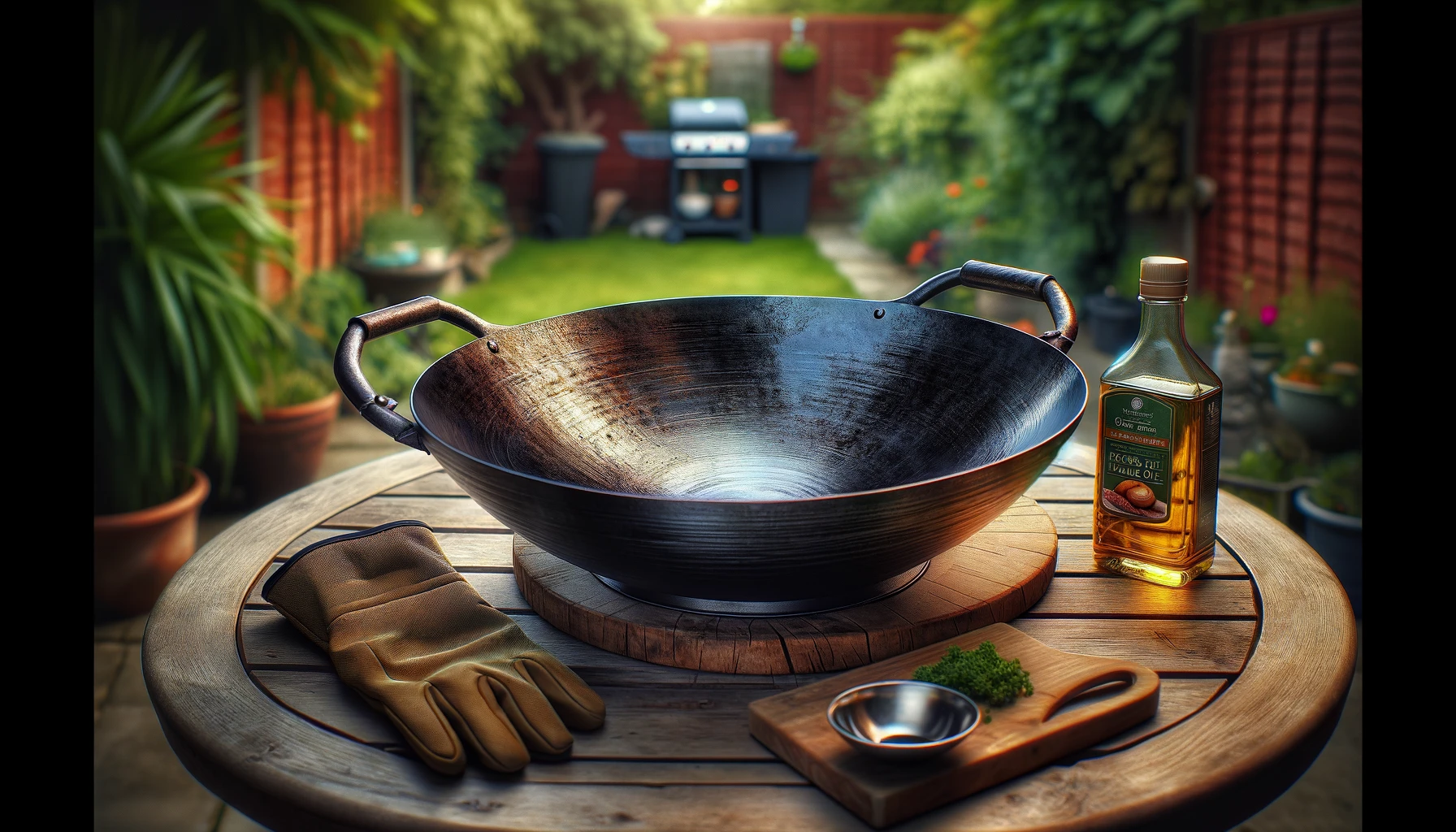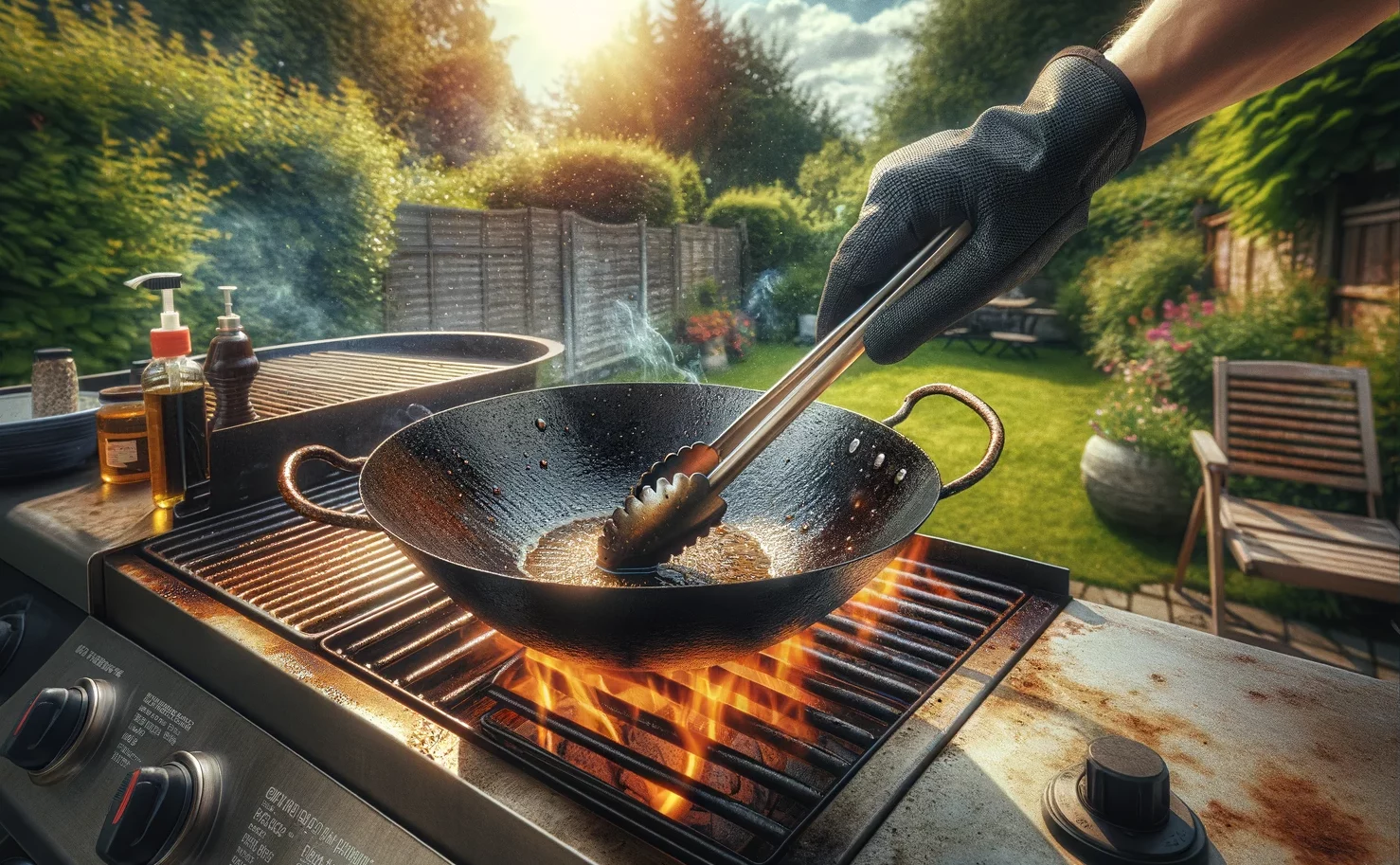Introduction
Seasoning a wok, a traditional cooking vessel, is a ritual cherished by culinary enthusiasts. Typically, this process involves heating oil or fat beyond its smoke point, creating a durable, black patina on the wok’s surface. However, this procedure can fill your kitchen with unpleasant odors and smoke. To circumvent this, I’ve adopted an innovative approach: seasoning my wok on the BBQ.
The Benefits of BBQ Seasoning
- Eliminating Unwanted Smells: Seasoning on the BBQ keeps those persistent burnt oil aromas out of your home.
- Consistent Heat Distribution: A BBQ provides steady, high heat, essential for an even seasoning coat.
- Outdoor Convenience: It’s an enjoyable, outdoor alternative, preventing the indoor temperature from rising.
Preparing the Wok and BBQ
- Cleaning the Wok: For new woks, remove the machining oil with soap and water. This is the only time soap should ever be used on your wok.
- Removing Grill Grates: Clear the BBQ of any grill grates or heat diffusers to ensure direct exposure to the flames.
The Seasoning Process
- Heating the Grill: Ignite the BBQ and set it to high, allowing it to heat up.
- Positioning the Wok: Place your wok directly over the flames. The more flame rows, the better.
- Applying Flax Seed Oil: Coat the inside of the wok with a thin layer of flax seed oil, then close the lid for a few minutes. This oil, known for its high smoke point, is ideal for creating a long-lasting seasoning layer.
- Repeating the Process: Apply several coats of oil, heating each time until the wok’s surface darkens uniformly.
Finishing Touches
- Using Pig Lard: After the flax seed oil, apply non-hydrogenated rendered pig lard for a traditional touch.
- Care and Maintenance: Post-seasoning, avoid soap. Clean with salt and a towel, and always dry thoroughly on the stove.
Personal Insights and Tips

- Selecting the Right Oil: I prefer flax seed oil for its high smoke point and longevity. However, other oils like grapeseed or canola can also be effective.
- Heat Management: It’s crucial to manage the heat throughout the process. Too low, and the seasoning won’t adhere; too high, and it can burn off.
- Patience is Key: Don’t rush the process. Each coat should be thin and evenly applied.
Additional Considerations
- Safety First: Always use tongs and heat-resistant gloves to handle the hot wok.
- Seasoning Frequency: New woks require thorough seasoning, but maintenance coats are necessary over time.
- Choosing a Wok: Traditional carbon steel woks are best for this method. They conduct heat evenly and retain it well.
Conclusion: Key Takeaways
- Healthier Cooking Surface: A well-seasoned wok offers a naturally non-stick surface, reducing the need for excess oil.
- Enhanced Flavor: Seasoning builds layers of flavor over time, contributing to the taste of your dishes.
- Cultural Connection: Seasoning a wok connects you to a long tradition of Asian cooking techniques.
- Environmental Consideration: Seasoning outdoors reduces indoor air pollution, a plus for your home environment.
Seasoning your wok on the BBQ is an efficient, enjoyable process that spares your home from the usual smells and smoke. With proper care, your wok will be a cherished tool in your culinary arsenal, providing a lifetime of flavorful, healthy cooking.


